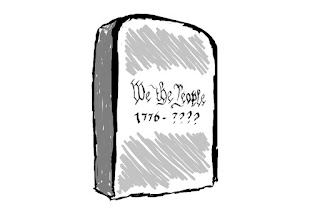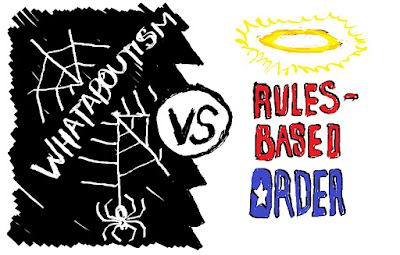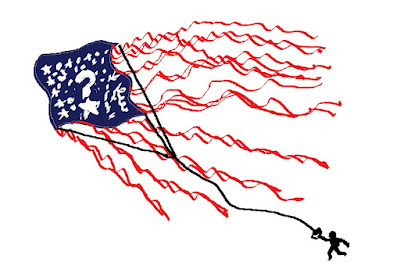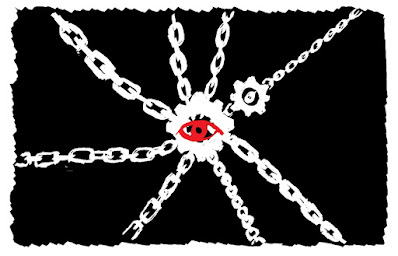Neoconservatives turn America into all the things it always tried to condemn in other nations - warmongers, tyrants, torturers and enemies of freedom. Guilty of launching the Iraq War, torture programs, and mass surveillance against their own people, there is seemingly no limit to what they might try to do.
Some of these traits may be shared simply by extremists on either side of the political spectrum, but any prominent person or intellectual adopting the below views is a neoconservative. They are a neoconservative because they have the views exclusive to the neoconservative ideology, complete with its absolutistic, utopistic bloodlust.
#1 Condemning “appeasement” regularly
They like to say “appeasement” frequently when describing supposedly weak responses to international conflicts, using it with regard to virtually every war, especially wars their country was already unethically involved in.
#2 Blaming the world's problems on a single “dictator”
They keep pointing to a single person as the public enemy at all times (usually a perceived authoritarian figure e.g., Adolf Hitler, Josef Stalin, Bill Clinton, Osama bin Laden, Saddam Hussein, Donald Trump, Vladimir Putin). They portray all these people almost like some reincarnating bogeyman, and the extent of their political theory is that killing or impeaching this bogeyman over and over again will save the world. They claim that political events surrounding this dictator have moral clarity and are like a movie, complete with a beginning, a middle and an end at which this “villain” is killed or defeated, by them or some hero figure, usually an American.
#3 Saying “can”, “should”, and “must” too often
Usually this is preceded by the word “America” or “we” as shorthand for the nation, or Western military alliances like NATO and US or Coalition military forces, usually accompanied by the idea that these forces are invincible in war and are only held back by weak liberals. They might personally have the physical prowess of a potato resting on a couch, but believe that their suggestions about sending soldiers into combat makes them akin to a cape-wearing hero. They also might make statements that America would have won or even did win in Vietnam and Afghanistan, but was betrayed by liberals (very similar to the “stabbed in the back” Nazi myth about World War One).
#4 Hating Kissinger and Carter
They think Henry Kissinger, Jimmy Carter’s National Security Adviser, is a coward for not sharing their simplistic good-vs-evil view of international affairs and conflicts. They might also really hate Jimmy Carter, seeing his administration as the weakest in American history. They might think America was later redeemed by the hero Ronald Reagan, seen by them as a superhero who single-handedly destroyed the Soviet Union. They hold the false belief that the Cold War was not a complicated affair ended by agreements, and instead insist it was simple battle between good and evil, believing that the good side (the West) won this “war”, and Russia surrendered and gave up its security (a key cause of the current Ukraine war).
#5 Advocating atrocities
They are willing to go on television and just advocate killing a civilian, even if this isn't their job, and think this is socially acceptable. They might think other members of their own society or fellow citizens should be censored, detained, tortured or killed for disagreeing with them on issues such as the above, presenting their own view as an unambiguously moral or factually correct default position rather than realising they are bloodthirsty fanatics for an ideology. They have no moral problems with torturing your body and killing your entire family if they judged you to be an impediment to their ideology (yet another trait they share with Nazis).
#6 Having protagonist syndrome
Another thing all neocons have in common is that their ideas are rooted in entertainment rather than reality. Neocons have Hollywood brains that love simplicity, villains, heroes, and a lot of violence against whoever they decided is bad (even if it later becomes clear that they are not bad). To quote someone taking the neocon path, “I had no knowledge beyond what I'd learned from Arnold Schwarzenegger and Rambo”.













